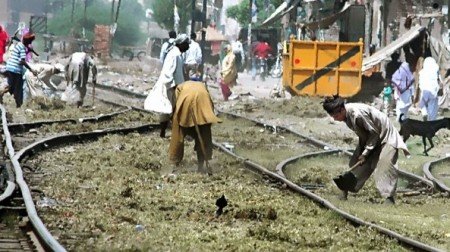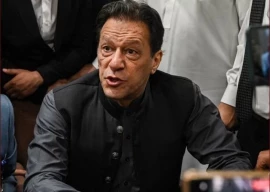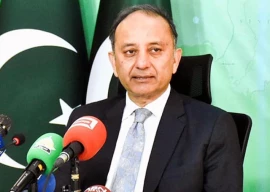
Stakeholders have criticised PR’s proposals and termed them ‘a serious waste of time.’ The stakeholders argued that the railways had presented an immature plan that ignored several basic requirements set out by the CCOR.
On March 10, 2010 the federal cabinet approved the CCOR’s initial summary of the restructuring plan and asked the railways to submit their proposal by April 30, 2010.
According to initial recommendations, the railway was asked to format of an independent board of directors, undertake corporate restructuring and carryout all management restructuring by April 30.
The PR proposal’s basic agenda centres on the organisation being operated along commercial lines based on the financial viability of train operations.
The railway minister will head the railway division and a railway policy board (RPB) will be established at the ministry level to formulate policies and monitor progress.
Nine RPB members will lead the venture under the guidance of the railway minister and these will include the railway secretary and finance, vice chairman planning commission, representatives of the federation of chambers of commerce and industry, four parliamentarians, PR’s chief executive officer and the finance general manager.
The railway operational board (ROB) will be established and shall be given executive powers to take day to day decisions regarding the facilitation of train operations. Seven members of the ROB shall be responsible for implementing the policies formulated by the RPB.
The ROB will be headed by PR’s chief executive and will compose of general managers (GMs) of rolling stock, traffic, infrastructure, manufacturing and finance.
After two years the GMs will be reallocated as managing directors of independent public limited companies. PR’s CEO (BS 21) must be a railway professional with at least 25 years of working experience with the Pakistan Railways. The GMs will have full powers in matters relating to their business units. A sitting senior civil servant in PR occupational group told The Express Tribune that PR’s proposals were a ‘complete eye wash and the restructuring plan is silent on the future of occupational groups in PR’.
“PR’s has proposed the composition of an RPB which is unnecessary because the PR already has a board working along the same lines,” he added. He said a large majority of RPB’s members were government officials, who weren’t interested in working for the improvement of the organisation. “Besides the CEO, all the RPBs should belong to the private sector,” he said. The civil servant said that the ROB could not hold its day-to-day meetings because members of the board could never reach a consensus on any issue.
“The first solution is to purchase new machinery and hire a young and dedicated workforce,” he said, adding that according to PR’s proposals the current staff would simply be restructured in the new setup which wouldn’t improve the PR.
“This system has been in place for 63 years,” he said. PR general manager Ashfaq Khattak first denied the existence of any PR proposals in this regard. Later he said that PR had recently asked the government to issue its recommendations on PR’s new policy and whether it should be reformed along commercial lines or with public servants at the helm. He said that the government had recommended the latter course.
Khattak said that the PR would not call any foreigners to take over any post, adding that the current staff would improve PR in the new setup.
FOUR-WAY TRACK
In the beginning of 2010, an outline of the initial restructuring railways plan was submitted. The new plan seeks to restructure the railways into four separate companies: passenger, freight, manufacturing and asset management company.

1725783822-0/Tribune-Pic-(15)1725783822-0-165x106.webp)






1732513395-0/Copy-of-Untitled-(75)1732513395-0-270x192.webp)








COMMENTS
Comments are moderated and generally will be posted if they are on-topic and not abusive.
For more information, please see our Comments FAQ